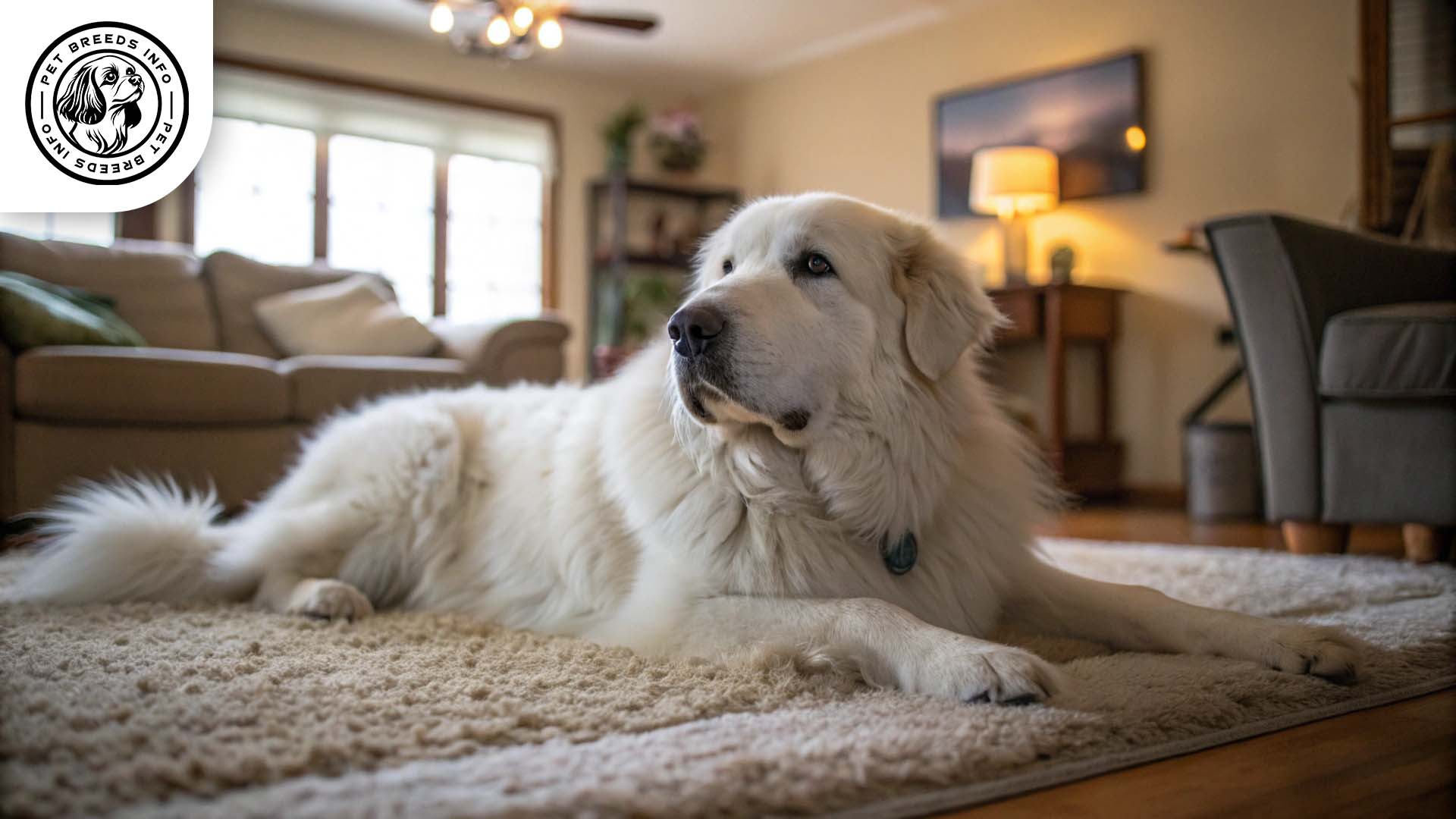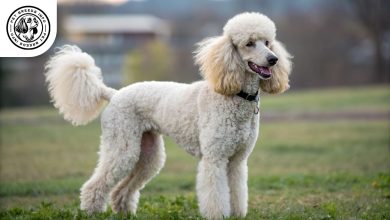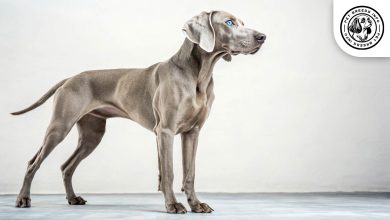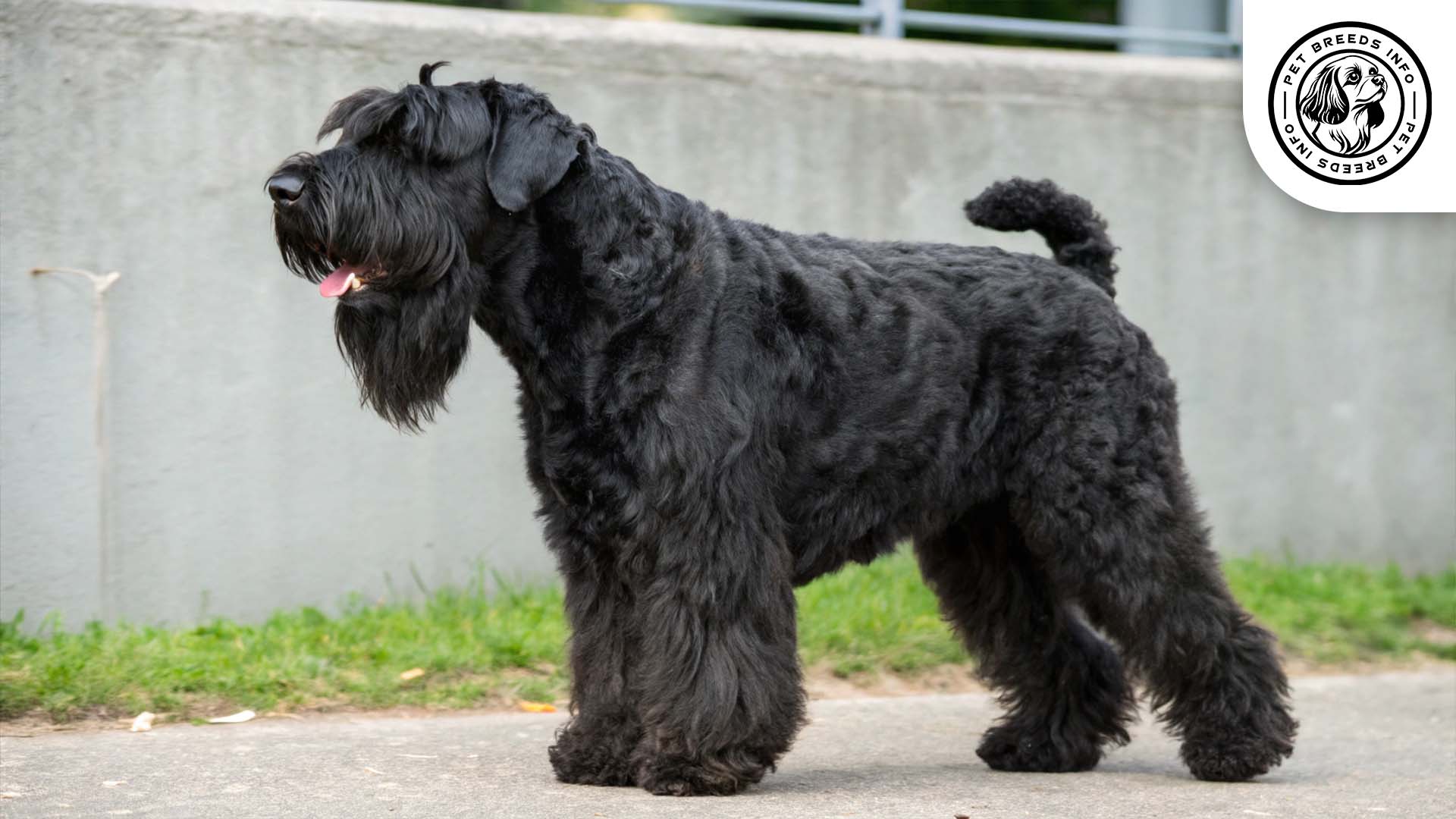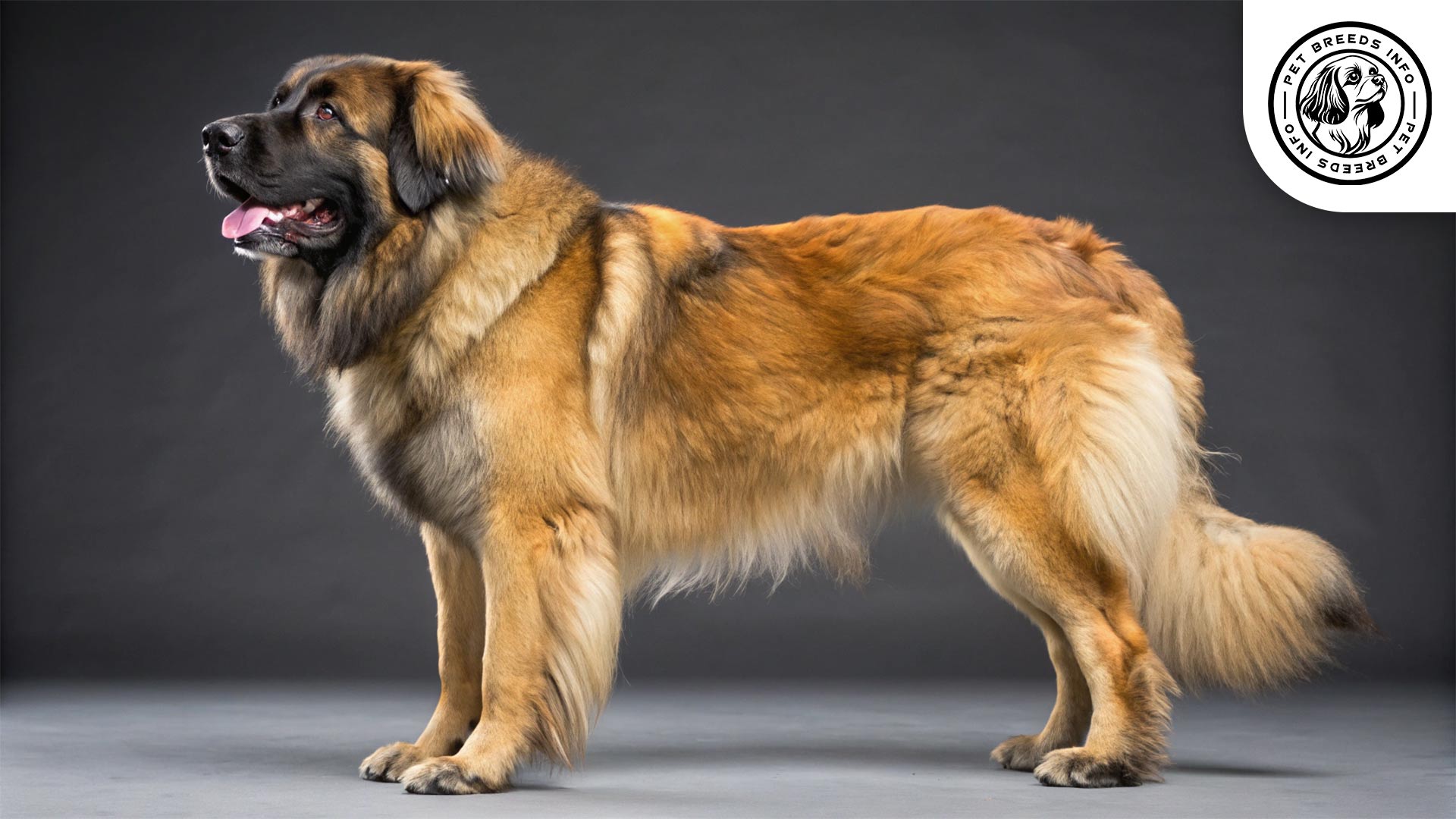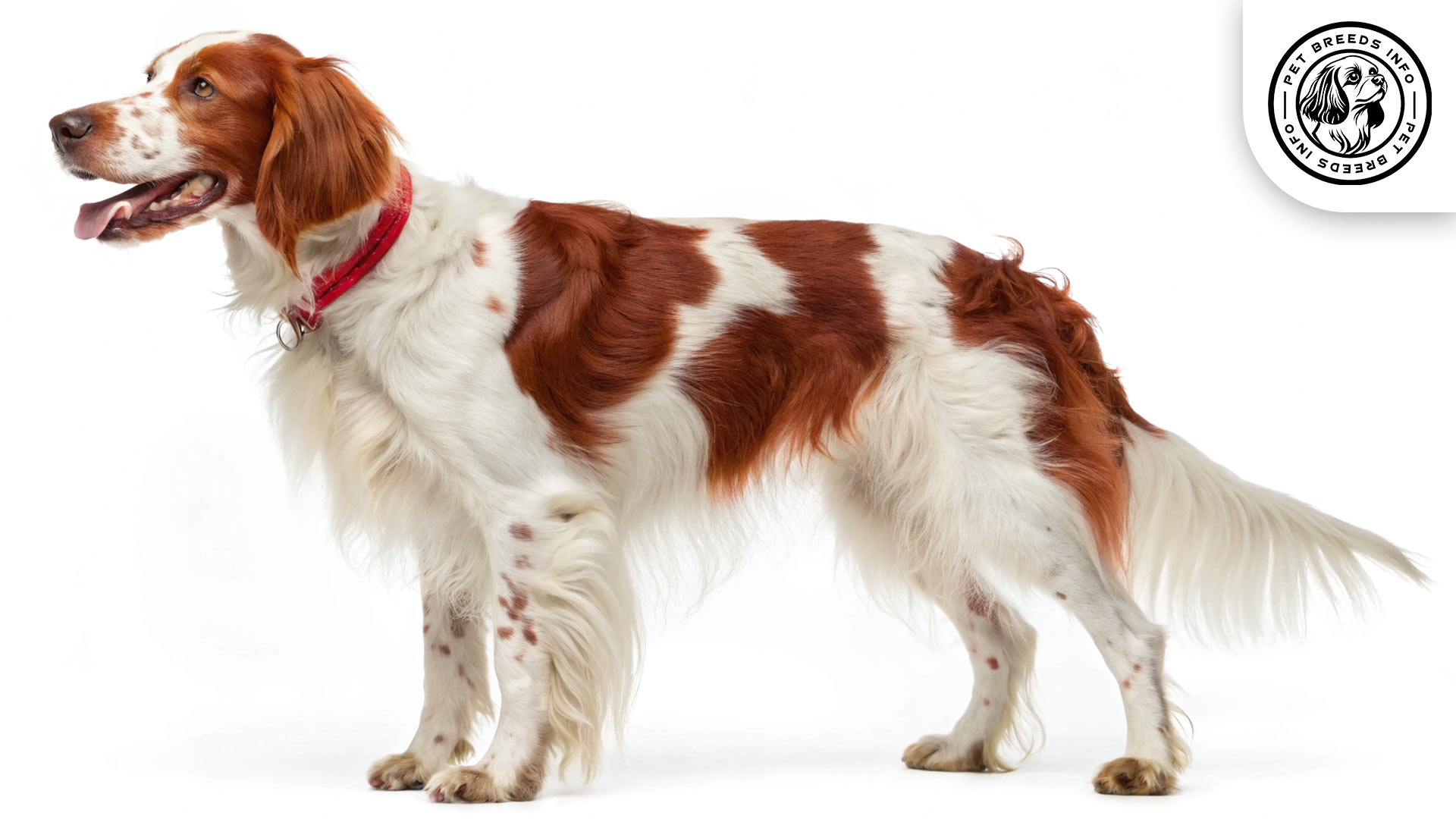Great Pyrenees Dog Breed : Size, Price & Personality
General Introduction of the Breed
The Great Pyrenees, also known as the Pyrenean Mountain Dog in some regions, is a large and majestic breed originally bred to guard livestock. This breed hails from the Pyrenees Mountains, which form the natural border between France and Spain.
Historically, the Great Pyrenees was used by shepherds to protect flocks from predators such as wolves and bears. Their natural guarding instincts and loyalty made them indispensable working dogs for centuries. Today, they are still used for livestock guarding but are also popular as loyal family companions.
Table of Contents
| Weight | Males: 100-160 lbs (45-73 kg), Females: 85-115 lbs (38-52 kg) |
| Lifespan | 10-12 years |
| Diet | High-quality dry food, raw diet, rich in protein and healthy fats |
| Care | Regular exercise, extensive grooming, heat-sensitive |
| Health | Hip/elbow dysplasia, bloat, patellar luxation, eye disorders |
| Color | Predominantly white with gray, tan, or reddish-brown markings |
| Nature | Loyal, protective, independent, gentle, intelligent |
| Price | $600 – $2,000 depending on breeder and lineage |
Physical Characteristics
The Great Pyrenees is a large and powerful breed with a well-proportioned body.
Average height: Males range from 27 to 32 inches (69-81 cm), while females are slightly smaller at 25 to 29 inches (63-74 cm).
Average weight: Males typically weigh between 100 to 160 pounds (45-73 kg), and females weigh between 85 to 115 pounds (38-52 kg).
The breed has a dense, weather-resistant double coat that is predominantly white, though some may have markings of gray, tan, or reddish-brown.
They have dark brown, almond-shaped eyes that give them a kind and intelligent expression.
Their ears are medium-sized, triangular, and set high on the head, usually hanging down close to the cheeks.
The tail is long and bushy, often carried low but sometimes raised in a plume when alert.
Distinctive features of this breed include their thick, luxurious fur, large paws, and a unique “dewclaw” on their hind legs, which is often double.
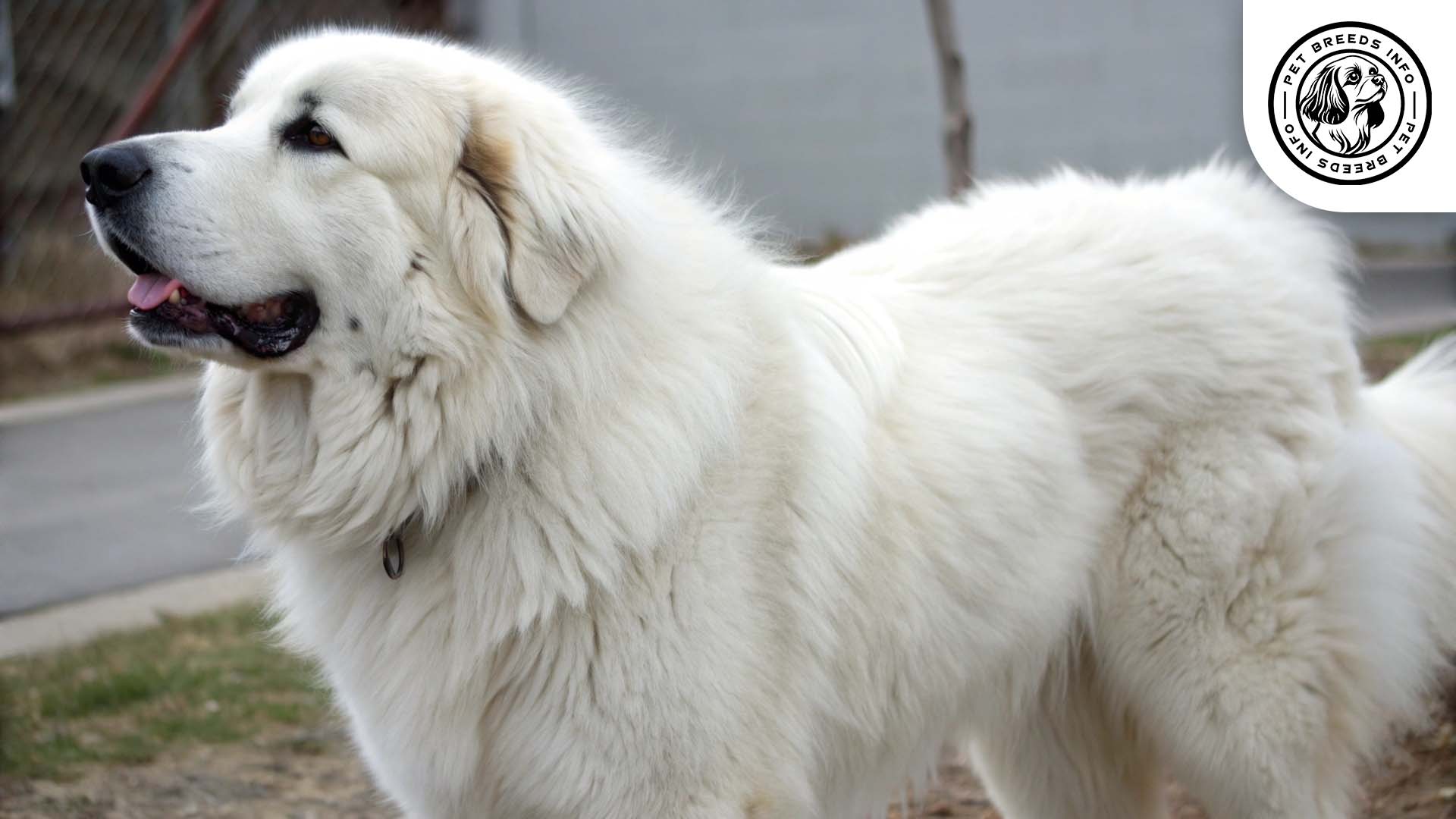
Personality and Temperament
The Great Pyrenees is an intelligent breed with strong instincts for guarding and protecting. They are known for their calm, patient, and gentle demeanor.
They have moderate energy levels and require regular exercise, though they are not as hyperactive as some other large breeds.
They are highly devoted to their owners and form strong bonds with their families. However, they are also known for their independent nature.
The breed tends to be very affectionate and gentle with children, making them excellent family dogs.
They are usually reserved around strangers but not aggressive. Their protective nature means they will act to defend their home and loved ones if they sense danger.
While they can coexist with other pets, early socialization is important to ensure they accept smaller animals.
They may be sensitive to environmental changes, such as excessive heat, due to their thick double coat.
Read More: Golden Retriever Dog
Care and Maintenance Requirements
Great Pyrenees require moderate exercise, such as daily walks and free play in a secure area.
They thrive best in homes with large yards or open spaces rather than small apartments.
Grooming is a significant part of their care. They shed year-round, with heavier shedding during seasonal changes. Regular brushing several times a week helps control shedding and prevents matting.
They can tolerate cold temperatures well but struggle in extreme heat due to their thick coat. Owners should ensure they have access to shade and fresh water during warm weather.
General hygiene includes occasional baths, regular nail trimming, ear cleaning, and maintaining good dental care by brushing their teeth regularly.
Diet and Nutrition
A high-quality diet is essential for the Great Pyrenees. Some owners prefer dry kibble, while others opt for a raw or natural diet.
They require a diet rich in protein and healthy fats to support their large size and coat health.
Foods to avoid include chocolate, grapes, onions, garlic, and anything containing excessive fat or salt.
Portion sizes vary based on age, weight, and activity level. Typically, adult dogs should be fed two meals per day.
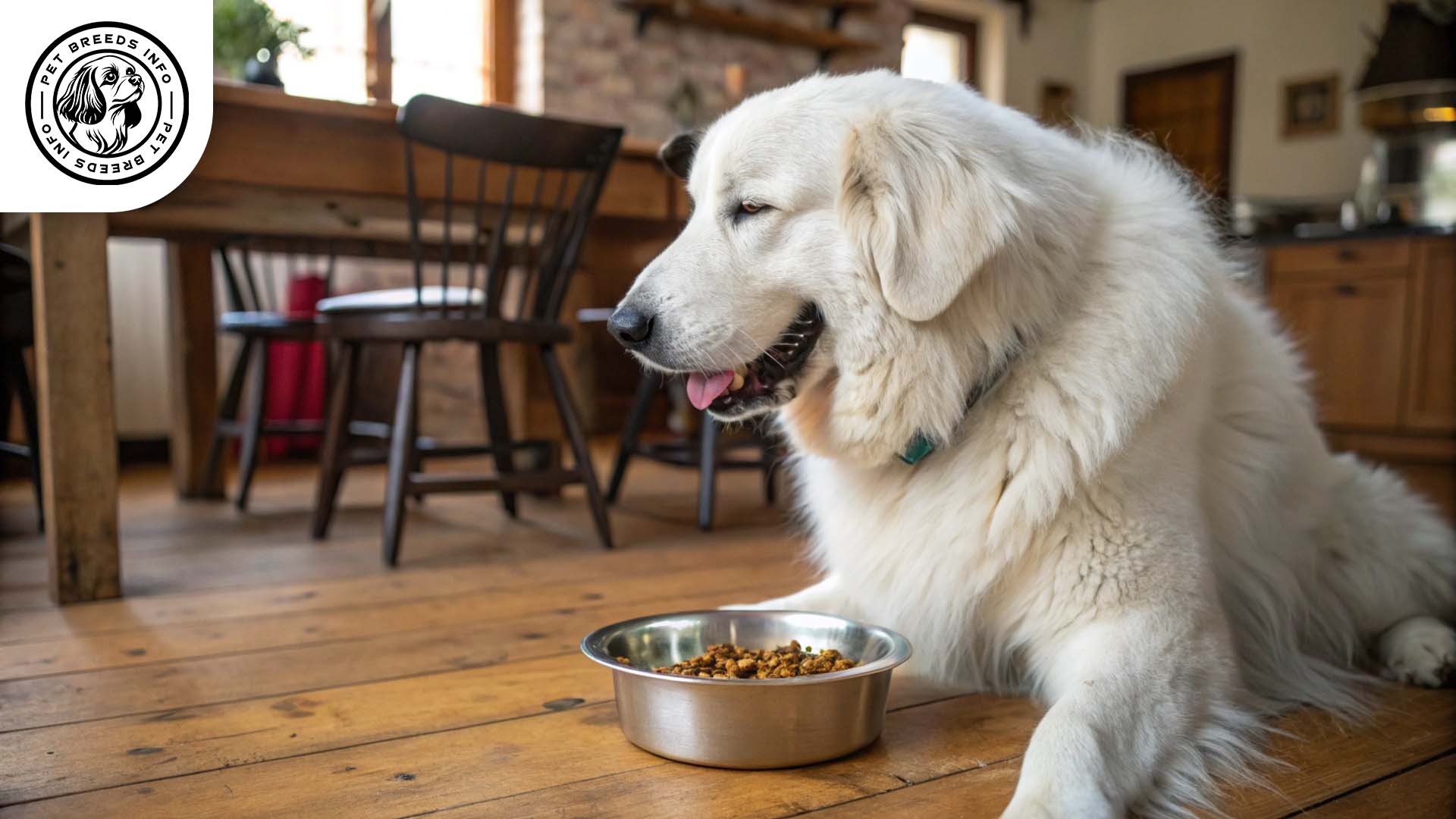
Health and Common Medical Issues
The Great Pyrenees is generally a healthy breed, but they are prone to certain genetic conditions.
Common health concerns include hip dysplasia, elbow dysplasia, patellar luxation, bloat, and hereditary eye disorders.
They have a lifespan of around 10 to 12 years, though some may live longer with proper care.
Routine veterinary care, vaccinations, and preventive measures against parasites help maintain their well-being.
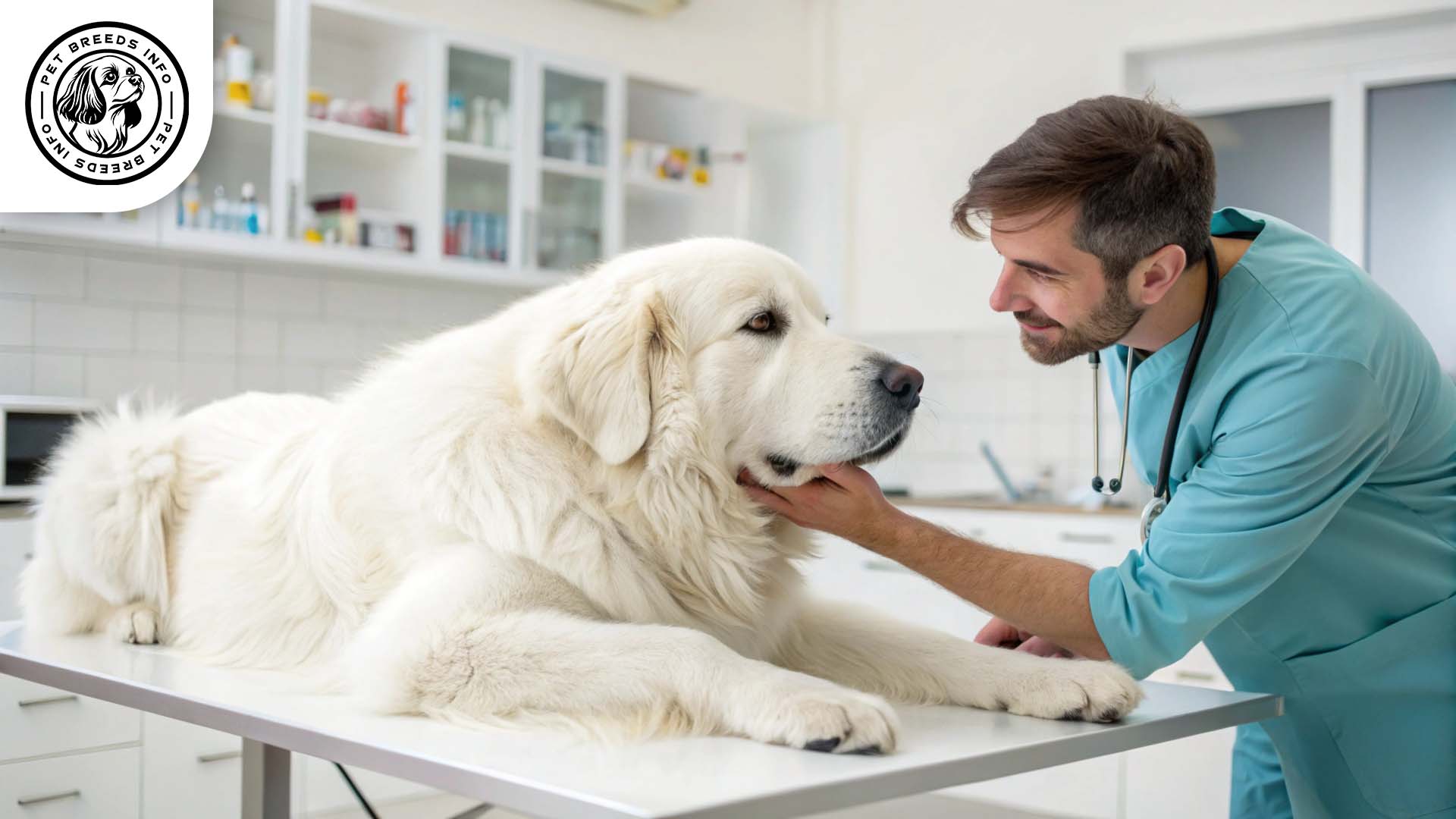
Training and Behavior Management
The breed is intelligent but may be stubborn at times, requiring patient and consistent training.
Early socialization is crucial to ensure they grow into well-adjusted adult dogs.
Positive reinforcement methods, such as treats and praise, work best when training this breed.
Basic obedience training should start from a young age to establish good behavior.
Read More: Bulldog
Interaction with Other Animals and Humans
The Great Pyrenees is usually gentle and protective of children, making them great family pets.
They can get along with other pets, but early socialization is advised to prevent dominance behaviors.
They are best suited for families with a secure yard or those who have experience handling large breeds.
Though known for their independence, they form strong bonds with their owners but are not overly clingy.
Price and Availability
The cost of purchasing a Great Pyrenees varies depending on factors such as breeder reputation, location, and lineage. Prices generally range from $600 to $2,000.
Adoption is a great alternative. Many rescue organizations have Great Pyrenees available for adoption at a lower cost.
Those looking to buy should always seek reputable breeders who perform health screenings and ethical breeding practices.
Conclusion and Final Thoughts
The Great Pyrenees is a noble, intelligent, and protective breed, ideal for experienced dog owners who can offer sufficient space and training.
They thrive in homes with large yards where they can exercise freely but also adapt well as family companions.
Potential owners should consider their grooming needs, size, and protective instincts before bringing a Great Pyrenees into their home.
Despite their independent nature, they are loving and loyal companions, making them a wonderful addition to the right household.
Read More: Cardigan Welsh Corgi Dog
FAQ
Are Great Pyrenees good family pets?
Yes, they are affectionate, protective, and great with children.
How much grooming does a Great Pyrenees require?
Frequent brushing is needed due to year-round shedding, especially during seasonal changes.
Do Great Pyrenees get along with other pets?
They can, but early socialization is key to preventing dominance behaviors.
What are common health concerns in Great Pyrenees?
They are prone to hip dysplasia, bloat, patellar luxation, and hereditary eye disorders.
Are Great Pyrenees easy to train?
They are intelligent but independent, requiring consistent, patient training with positive reinforcement.
